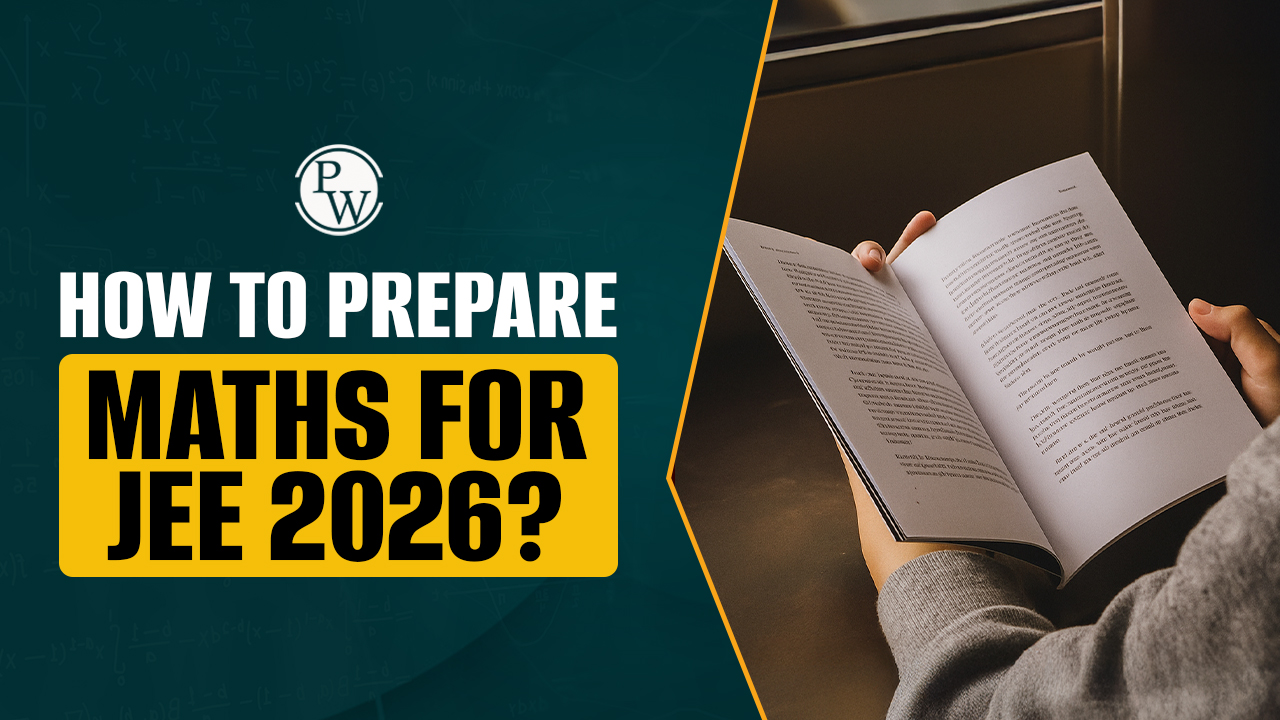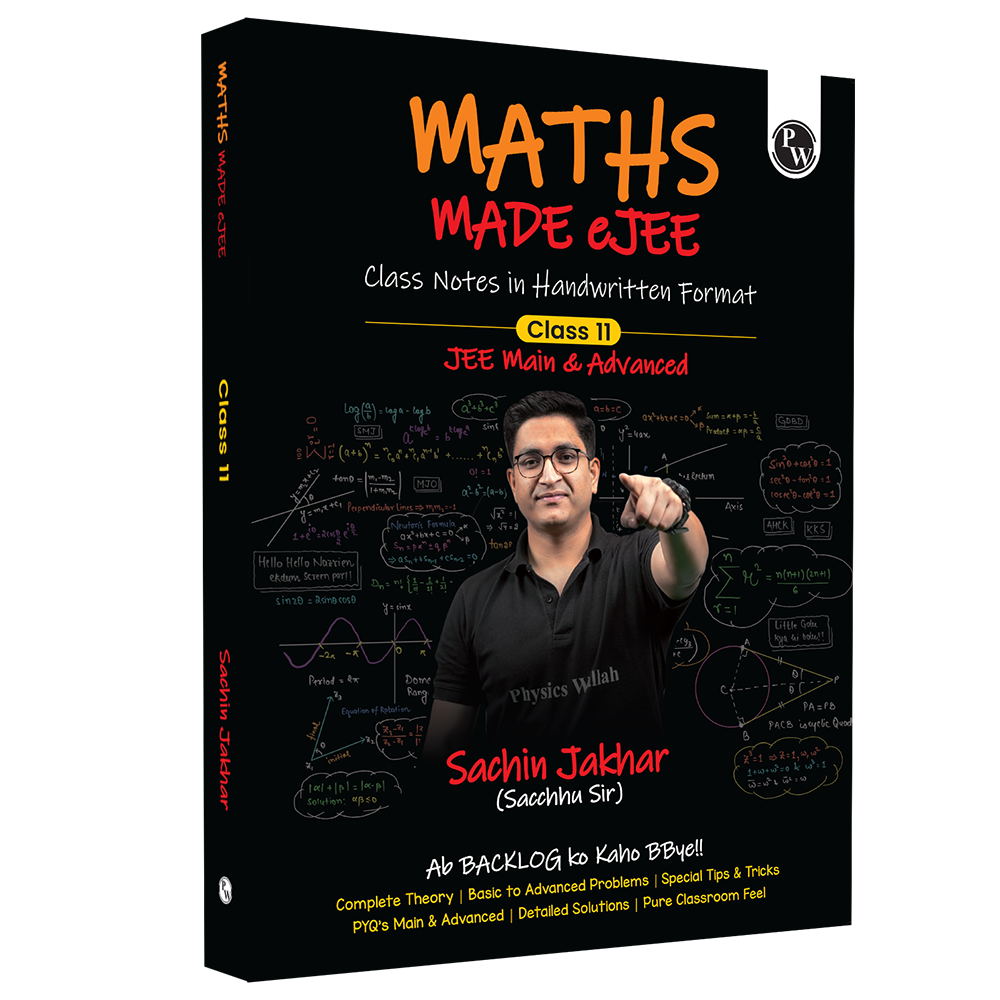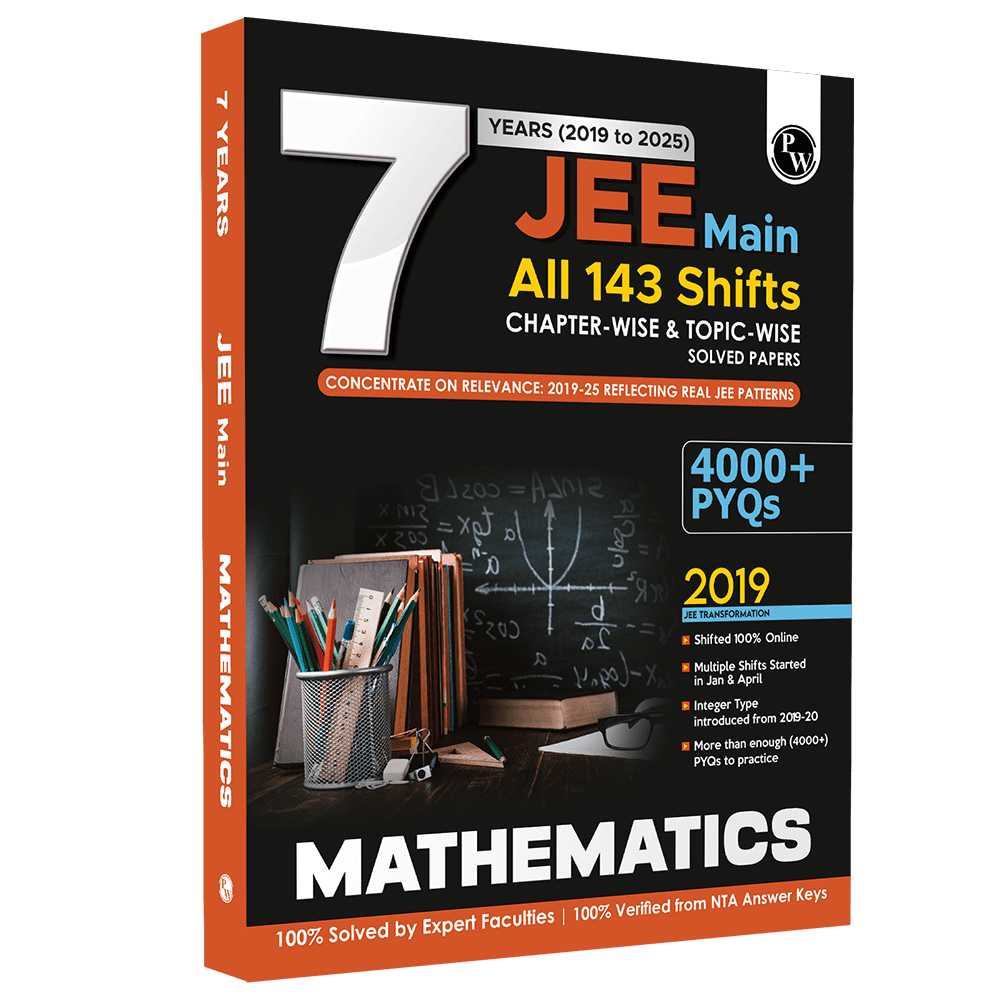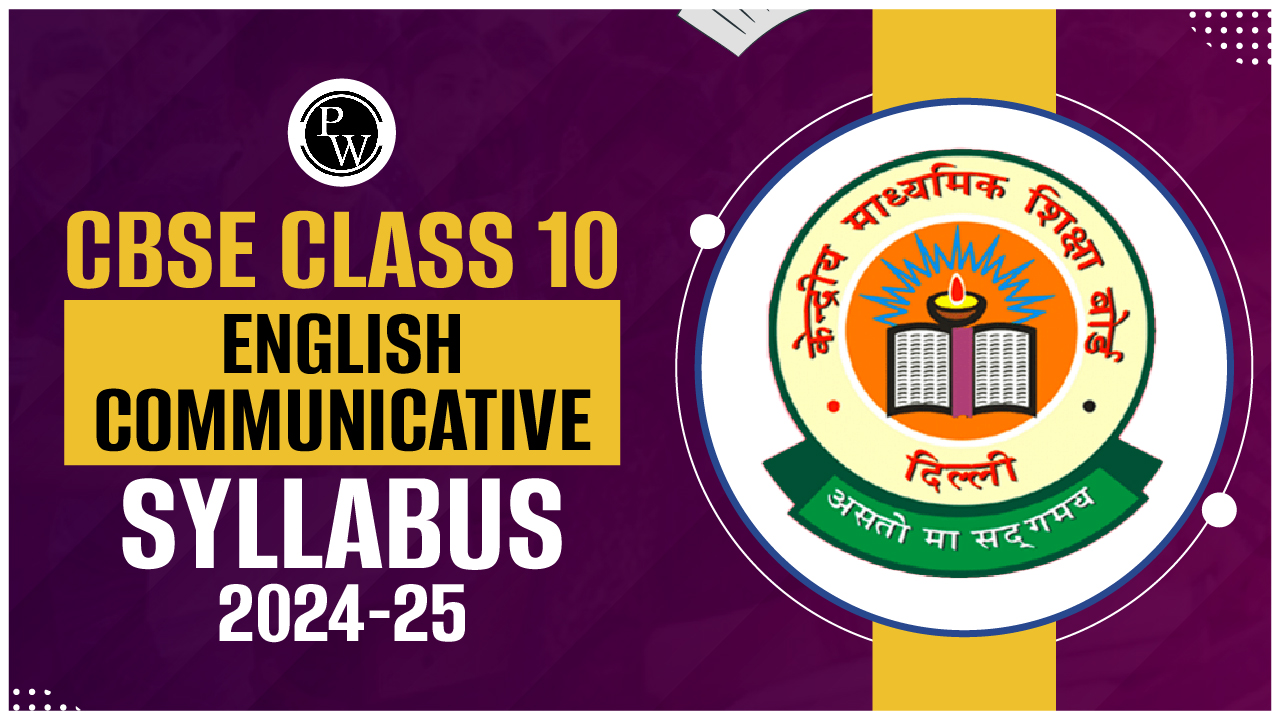How to Prepare Maths for JEE 2026?

How to Prepare Maths for JEE 2026: Preparing for JEE Maths can feel tough at first, but with the right plan and regular practice, it becomes easier over time. The JEE Main 2026 exam will be held in two sessions, one in January and the other in April, as announced by NTA. The official notification and the application form for Session 1 will be available in the first week of November 2025 on the website jeemain.nta.nic.in, and the registration for Session 2 will start in February 2026.
Maths is a very important part of the exam and can help boost your overall score if prepared well. Many students find JEE Maths tricky because it needs both understanding and speed. But with clear concepts, regular problem-solving, and the right set of JEE Maths books, you can do well. This subject needs daily practice, revision of formulas, and solving different types of questions. In this article, we will share how to prepare for JEE Mains Maths simply and effectively so that you feel confident and ready before the exam.
JEE Main 2025 Exam Pattern
Before starting your preparation, it's important to understand the JEE Main 2025 exam pattern, as it helps you know what to expect in the exam. The National Testing Agency (NTA) conducts the JEE Main exam for students who wish to join engineering courses in top colleges across India.
The exam mainly includes three subjects: Physics, Chemistry, and Mathematics. Each subject has a mix of multiple-choice questions and numerical-based questions. The paper is held in online mode (CBT), and you get a total of 3 hours to complete it.
|
Subject |
Section A (MCQs) |
Section B (Numerical) |
Total Questions |
Marks |
|
Mathematics |
20 |
10 (attempt any 5) |
25 |
100 |
|
Physics |
20 |
10 (attempt any 5) |
25 |
100 |
|
Chemistry |
20 |
10 (attempt any 5) |
25 |
100 |
|
Total |
– |
– |
75 |
300 |
Check Out: PW JEE Books
JEE Maths Important Topics
Maths is one of the most scoring subjects in JEE Main, but it needs strong basics and regular practice. If you're serious about your JEE Maths preparation, it's important to focus more on the topics that are asked frequently in the exam.
Some chapters carry more weight and often have tricky questions, so knowing these can help you prepare better and save time. Along with understanding the concepts, you should also practise problems from a good maths book for JEE preparation, which covers all types of questions, easy, moderate, and difficult. Whether you're in the early stage of preparation or revising before the exam, keeping these important topics in mind will help you stay on track.
|
Main Topic |
Subtopics |
|
Coordinate Geometry |
Straight Lines, Circles, Parabola, Ellipse, Hyperbola |
|
Calculus – Differential |
Limits, Continuity, Differentiability, Derivatives, Applications of Derivatives |
|
Calculus – Integral |
Indefinite Integration, Definite Integration, Area under Curves |
|
Algebra – Matrices & Determinants |
Types of Matrices, Operations, Inverse, Properties, Determinants, Cramer's Rule |
|
3D Geometry & Vectors |
Direction Cosines, Direction Ratios, Line Equation, Plane Equation, Angle Between Lines and Planes |
|
Complex Numbers |
Algebra of Complex Numbers, Modulus, Argument, Polar Form, Cube Roots of Unity |
|
Probability & Statistics |
Mean, Median, Mode, Standard Deviation, Bayes’ Theorem, Independent Events |
|
Sequence & Series |
Arithmetic Progression (AP), Geometric Progression (GP), Sum of n terms, Special Series |
|
Trigonometry |
Identities, Heights and Distances, Trigonometric Equations, Inverse Trigonometric Functions |
|
Sets, Relations & Functions |
Types of Sets, Venn Diagrams, Domain and Range, Types of Functions |
|
Quadratic Equations |
Nature of Roots, Sum and Product of Roots, Graph of Quadratics |
|
Permutations & Combinations |
Factorial, Permutations, Combinations, Circular Permutations |
|
Binomial Theorem |
General Term, Middle Term, Properties, Simple Expansions |
Check Out: JEE Previous Year Papers
JEE Maths Books
Choosing the right book is very important for JEE Maths preparation. A good book will help you understand the concepts clearly and will give you enough questions to practise. There are many JEE Maths books available, but it’s better to follow the ones that explain each topic in a simple way and cover all types of questions that will be asked in the exam.
If you are looking for the quality maths book for JEE preparation, you can go for the books by PW (Physics Wallah). These books are written in easy language, have solved examples, and include questions from previous years too. They are made to match the latest syllabus and will help students prepare step by step. Whether you are just starting or revising, PW books will be a very good choice to score well in Maths.
|
JEE Maths Books |
|
|
JEE Main 7 Years (2019 - 2025) Mathematics Previous Years Papers Chapterwise and Topicwise |
|
|
48 Years JEE Advanced Mathematics Chapterwise & Topicwise Solved Papers (1978-2025) |
|
|
Absolute JEE Advanced Mathematics 2500+ Questions with Formula Sheet |
|
How to Prepare Maths for JEE 2026?
Preparing for JEE Maths needs a good plan, strong basics, and daily practice. As JEE Main 2026 will be held in two sessions, once in January and then in April, students will get two chances to perform well.
Maths is an important part of the exam, and many students find it a bit tricky because of its wide syllabus and different types of questions. But with proper time and effort, you can surely improve your performance in Maths JEE. Below are some simple and helpful tips to guide you through your JEE Maths preparation step by step.
1. Understand the Syllabus and Exam Pattern
Knowing what to study is the first step in any preparation. The JEE Mains Maths syllabus is based on Class 11 and 12 topics. It includes a mix of easy, moderate, and difficult chapters. Some questions will test your basic knowledge, while others will check your application skills.
-
Download the official syllabus from the NTA website.
-
Divide the syllabus into Class 11 and Class 12 sections.
-
Mark topics that carry higher weightage like Calculus, Coordinate Geometry, and Algebra.
-
Go through previous year question papers to understand the type of questions asked.
-
Understanding the exam pattern is also important:
-
Total questions: 90 (need to attempt 75)
-
Each subject: 25 questions (20 MCQs + 10 numerical, attempt any 5 numericals)
-
Total marks: 300
2. Focus on Important Topics First
The JEE exam gives more weight to certain topics. Starting with the most important ones will help you gain confidence and make a strong start to your preparation. These chapters are not only asked frequently but also form the base for many other topics.
-
Coordinate Geometry: Straight lines, circles, parabola, ellipse, hyperbola
-
Calculus: Limits, continuity, differentiation, integration, area under curves
-
3D Geometry and Vectors: Line and plane equations, direction ratios, angles
-
Algebra: Matrices, determinants, complex numbers, quadratic equations
-
Probability and Statistics: Bayes’ theorem, standard deviation, mean, variance
-
Trigonometry: Identities, equations, heights and distances
-
Once you're done with these, you can move to topics like sets, relations, permutations and combinations, and binomial theorem.
3. Choose the Right Books
Choosing the right study material is very important for your success. Begin with NCERT textbooks to clear your basics. After completing NCERT, go for advanced JEE Maths books that offer a variety of questions.
-
NCERT Class 11 and 12 Maths: Best for concept building
-
PW (Physics Wallah) JEE Maths Books: Easy to understand language, chapter-wise exercises, solved examples
PW books are specially designed for students preparing from home. Their step-by-step approach and simple explanations make it easy to understand even difficult topics.
4. Make a Daily Study Plan
A proper study plan will help you manage your time better. Maths cannot be prepared overnight. Daily practice is the key.
-
Study Maths for at least 2–3 hours every day.
-
Divide your time into learning theory, solving examples, and practising problems.
-
Use mornings for new topics as your mind is fresh.
-
Keep evenings for revision and doubt-solving.
-
Set weekly goals and try to complete them on time.
-
Stick to your plan even if the progress feels slow in the beginning. Consistency is more important than speed.
5. Practise Questions Regularly
In Maths, concepts become clearer when you apply them. That’s why solving questions is more important than just reading theory.
-
Solve all examples given in NCERT and JEE Question Banks books.
-
Practise easy, medium, and hard-level problems for each topic.
-
Don’t skip numerical type questions.
-
Set a timer while solving to improve your speed.
-
Target to solve at least 20–30 questions every day. Start small, then increase your number gradually.
6. Work on Your Weak Areas
Everyone has some chapters they struggle with. Ignoring them is not the right solution. Instead, give extra attention and time to improve those areas.
-
Identify 2–3 weak chapters.
-
Watch video lectures from PW or your coaching.
-
Read the theory again slowly and carefully.
-
Solve basic level problems first.
-
Once confident, move to moderate and then difficult questions.
-
Keep a separate notebook for doubts. Discuss these with teachers or friends to avoid confusion before the exam.
7. Revise Regularly and Make Short Notes
Revision helps you remember concepts and formulas for a long time. Along with new chapters, keep revising old ones.
-
Prepare short notes for every chapter with important formulas and tricks.
-
Revise these notes daily or every alternate day.
-
At the end of each week, revise at least two previously studied topics.
-
Create flashcards or formula sheets to make revision easier.
-
Try to revise each chapter at least 3–4 times before the exam. This will reduce last-minute pressure.
8. Solve Previous Year Papers and Take Mock Tests
Solving actual exam papers gives you a real feel of the exam. It also helps in time management and boosts your confidence.
-
Solve at least 5–10 previous year JEE Mains Maths papers.
-
Take full-length mock tests once a week initially, and then twice a week closer to the exam.
-
Attempt papers in one sitting of 3 hours.
-
After the test, check your answers, mark your mistakes, and rework them.
Read More: JEE Main Chapter Wise PYQ
JEE Maths Books FAQs
1. Is NCERT enough for JEE Maths?
NCERT is great for basics, but for full JEE Maths preparation, you also need reference books like PW, Arihant, or Cengage.
2. How many hours should I study Maths daily for JEE?
Try to give at least 2–3 hours daily to Maths with full focus and no distractions.
3. Which is the right maths book for JEE preparation?
PW (Physics Wallah) books are highly recommended for clear theory and good practice questions.
4. Can I prepare for JEE Maths without coaching?
Yes, with the right books, a proper timetable, and online help, you can prepare well at home.
5. How important is revision in Maths?
Very important. Without revision, it’s easy to forget formulas and steps, especially during exams.











